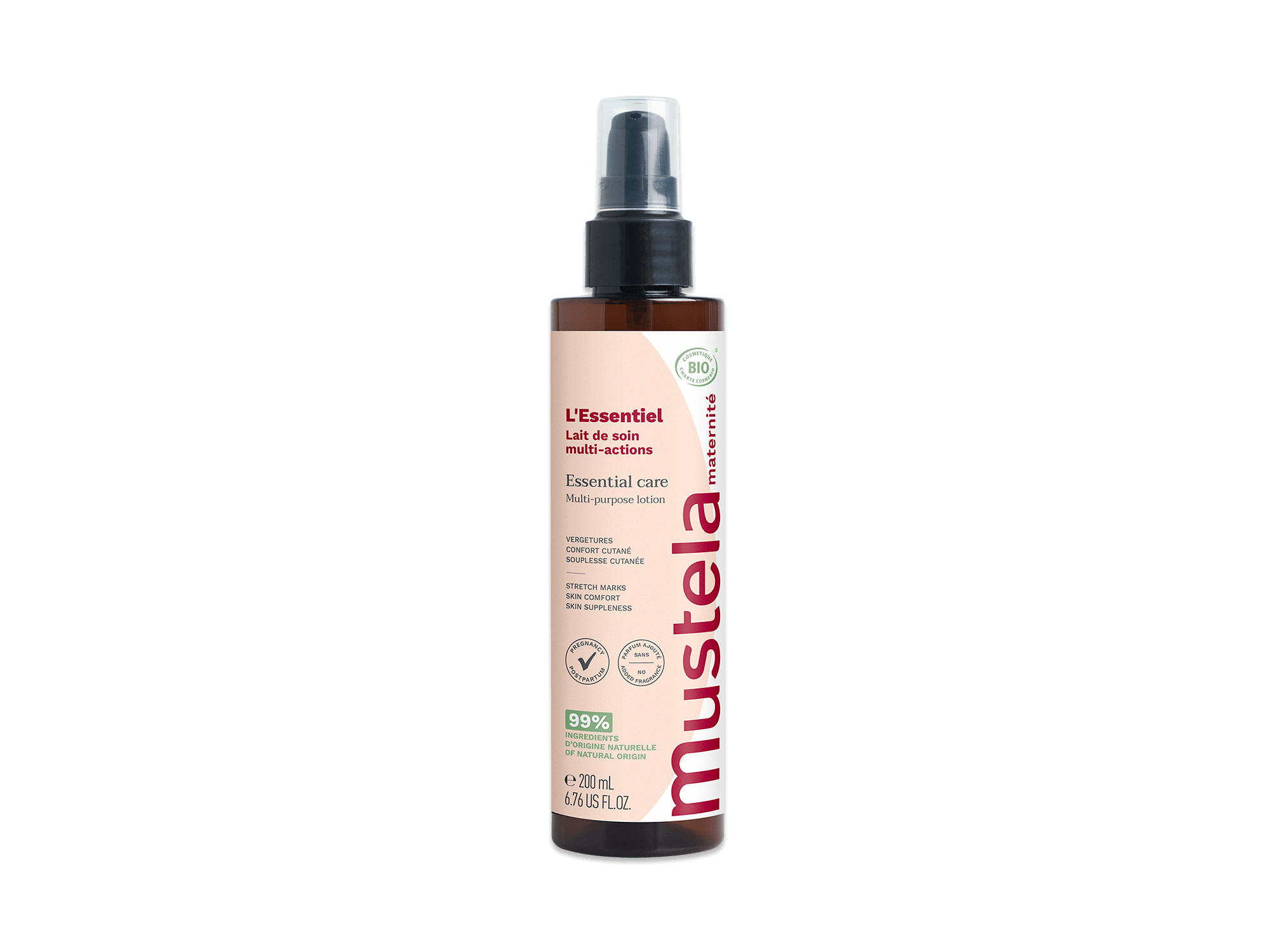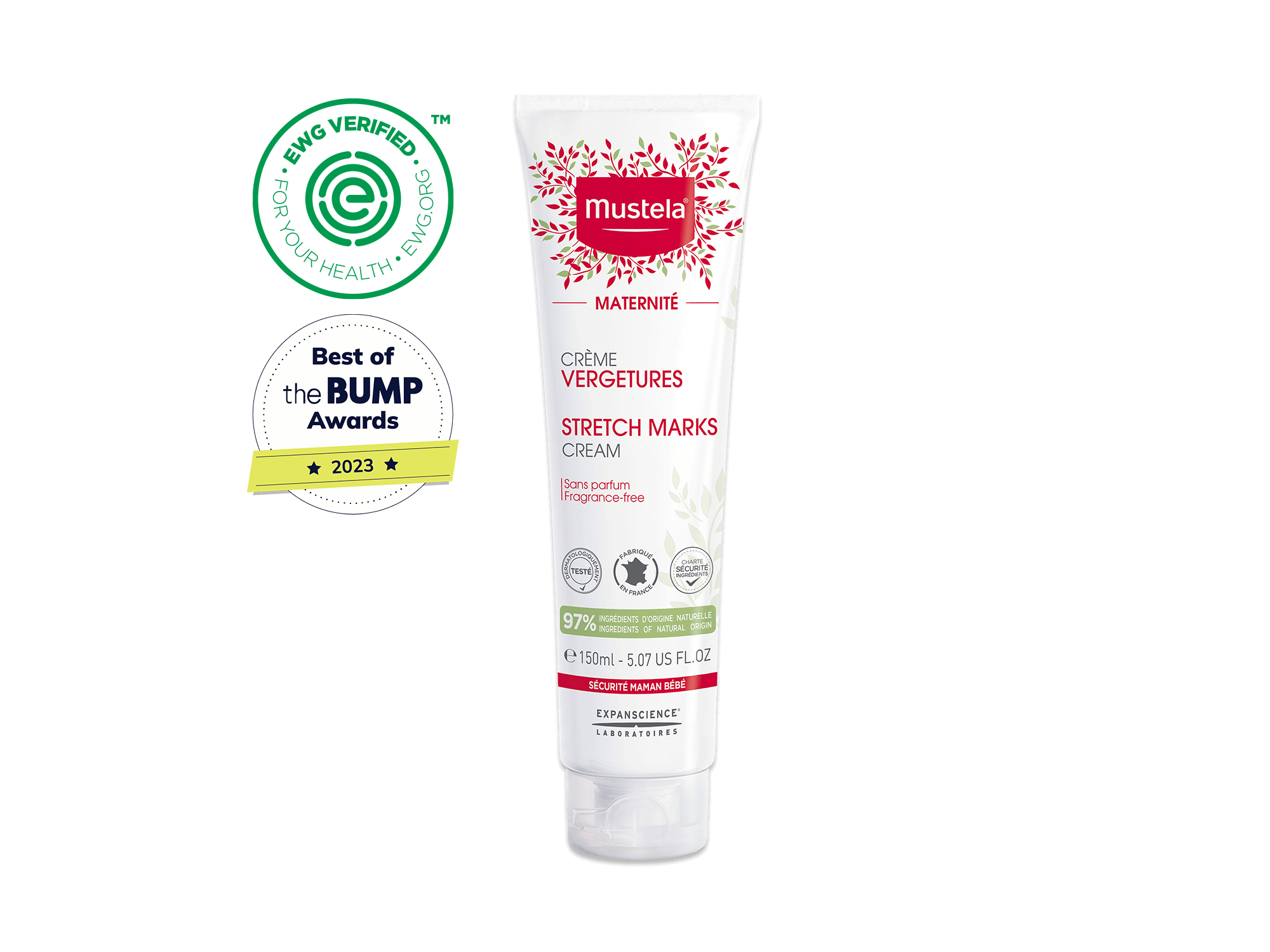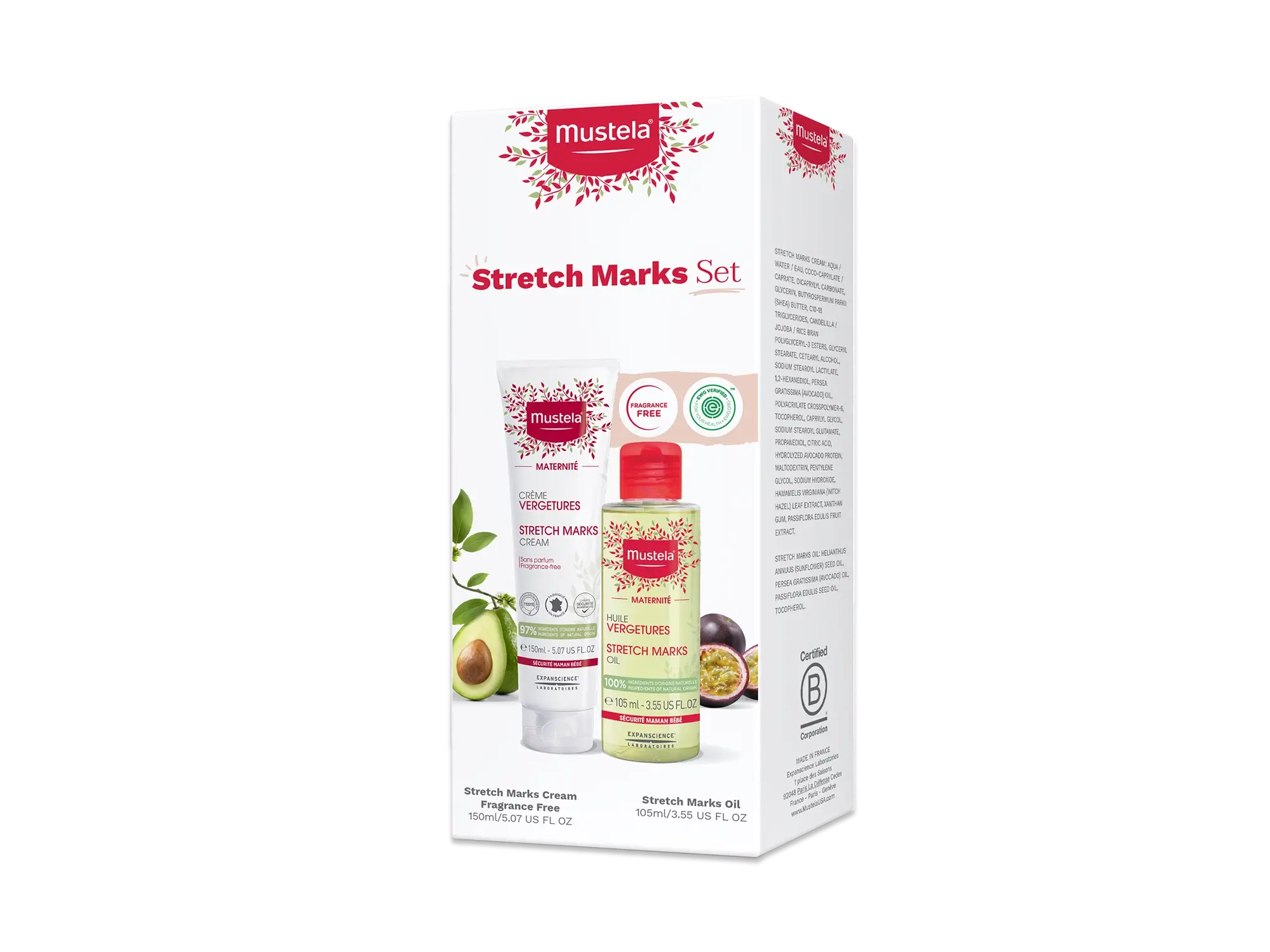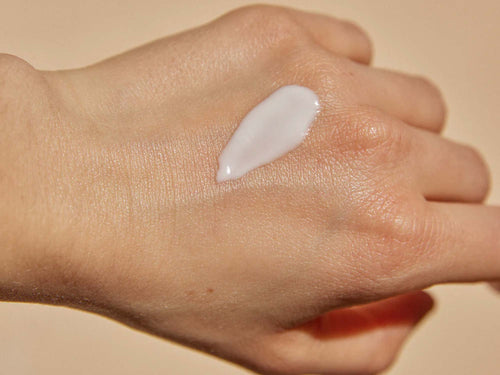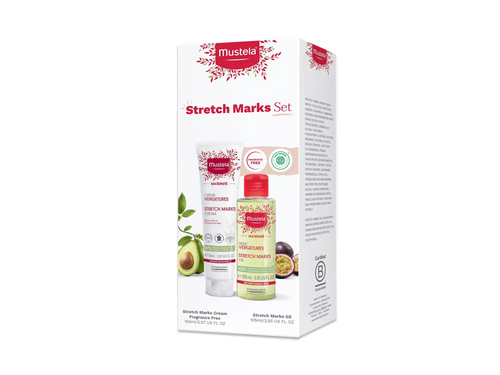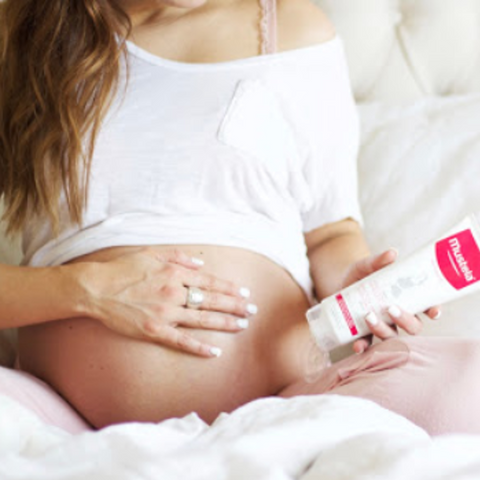Your strong, beautiful body goes through so many changes when you’re growing a baby! While it’s all part of the important work, one of the more unwelcome events that some women go through is swelling during pregnancy.
As annoying as it can be, mild swelling — especially during your third trimester and the summer months — is quite common for expecting moms. But we know that it can be concerning.
What’s normal? When should you go to the doctor? And how can you manage it?
To put you at ease, those are the questions we’ll answer. Let’s start with what normal, run-of-the-mill swelling during pregnancy looks like.
Swelling During Pregnancy: What’s Normal?

As your body meets the needs of your growing little one, it’s perfectly normal to experience swelling in your legs, ankles, and feet. You can sometimes have mild puffiness in your hands or face, too. Why?
First of all, when you have a baby growing inside, your body produces extra blood and fluids and holds more water.
Secondly, the pressure from your growing uterus can cause fluid to gather in your legs and feet. This is especially true if it’s hot (hello, summer pregnancy!), or you’re on your feet a lot. The swelling can increase as you get closer to your due date.
You’ll tend to notice puffy feet and ankles more at the end of the day. This mild swelling, called edema, is a normal part of pregnancy, and while there are ways to manage it (we’ll get to that soon), there’s nothing to worry about.
That said, swelling during pregnancy is cause for concern when it comes on suddenly or affects other parts of your body. Let’s take a look at when you should call the doctor.
When To Call The Doctor
Mild, normal swelling during pregnancy means foot and ankle swelling. But if things go much past that, you’ll need to see the doctor.
Swelling in your face or more than mild puffiness elsewhere are reasons to call your doctor. Likewise, if swelling comes on suddenly, is painful, or appears in only one leg, get in touch with your doctor as soon as possible.
The same applies if you have a bad headache, vision problems, pain below your ribs, chest pain, shortness of breath, or nausea or vomiting.
It’s always better to be safe than sorry, so don’t hesitate to reach out to your doctor or be seen in person if you have any concerns.
How To Manage Swelling During Pregnancy

Assuming that your puffiness is run-of-the-mill swelling during pregnancy, here are several ways to take care of yourself and manage your swollen legs and feet!
Put Your Feet Up
Put your feet up — literally. Your hard-working body deserves to relax, but putting your feet up can also help with swelling!
Elevate your legs, whether you’re sitting or lying down. That might mean propping your feet on the coffee table or lying on the couch with a pillow under your legs.
Plus, as a general rule to manage swelling during pregnancy, you’ll want to avoid being on your feet for long periods of time.
Speaking of well-deserved self-care, be sure to take care of yourself from head to toe. Look out for your growing, stretching skin with our Stretch Marks Set, which includes fragrance-free Stretch Marks Cream and Stretch Marks Oil.
Our velvety Stretch Marks Cream moisturizes and nourishes your skin, leaving it comfortable and smooth while helping prevent the appearance of stretch marks during pregnancy. And you can rest assured that it’s safe for pregnant bodies.
This EWG Verified cream contains 97% ingredients of natural origin per ISO 16128 standard, such as avocado peptides, a patented nutrient that helps protect and strengthen delicate skin, and maracuja polyphenols and hamamelis plant extract to improve your skin’s suppleness.
Our Stretch Marks Oil pairs perfectly with this cream to delivery intense hydration and is safe for moms to use both during pregnancy and postpartum.

Don’t Cross Your Legs
Many women experience aching or painful legs during pregnancy. For the sake of your circulation, don’t cross your legs when you sit. We know it can be hard to get out of the habit, but your legs will thank you!
Stay Active

While we’re on the topic of good circulation, here’s another tip: Stay active! We’re certainly not talking about staying on your feet all day or taking up marathon running. However, moving your body can do a world of good.
When it comes to choosing the right exercise, walking or swimming are two great activities to keep your feet and legs moving. Click here for tips on how to exercise while you’re pregnant.
If you’re looking for even more simple exercises for you and baby (that focus on your feet and legs), here are a few ideas:
- While standing, hold onto the back of a chair for balance. Slowly rise up onto your toes then lower yourself down. Do several repetitions.
- Point and flex your foot a few times and repeat this exercise with your other foot.
- Rotate your foot in a circle, first in one direction and then the other. Repeat with your other foot.
Notice that the last two exercises can be done while sitting! Prop your feet up and get to it.
Stretch
Similarly, stretch your body frequently, especially if you’re sitting for a long time. If stretching has never been a habit for you, start slowly with what feels good. There’s no need to overdo it.
Focus on stretching your legs — your calves and hamstrings, for example.
Sleep (On Your Left Side)
Although sometimes it can be hard to come by, getting enough sleep is important when you’re pregnant! But the amount of sleep is not the only important factor. When it comes to swelling during pregnancy, how you sleep is a big factor.
Sleep on your left side to take pressure off of one of the main veins that takes blood from your lower extremities to your heart.
If snoozing is a challenge for you, click here for tips to sleep better while pregnant.
Get A Massage
A massage is great for relaxing the body and for managing swelling during pregnancy. It can increase blood flow, loosen your muscles, and help you calm down. To treat your body, go in for a professional pregnancy massage or have your partner massage your legs.
For an at-home massage, use a natural oil like our Stretch Marks Oil and start by massaging your feet, working upward to the calves and then the thighs.

Stay Cool
We mentioned that heat can make swelling during pregnancy a bit worse. This is why you’ll want to limit your time outdoors during the dog days of summer and cool off however you can.
Try taking a cool shower or bath or applying cold compresses to your legs.
Hydrate
It’s true that your body produces more fluid and blood when you’re pregnant. It might seem logical to cut down on your water intake to limit the fluid in your body, but that’s the last thing you want to do!
Your body needs plenty of water to stay hydrated. And drinking enough water actually helps your body do away with extra fluid.
Eat Healthily
We won’t go into much detail about a good pregnancy diet, but we will say one thing. Your body is a complex machine, and what you eat can affect even your puffy, swollen legs! The bottom line: Focus on healthy foods.
Cut down on your salt intake (think: salty, processed foods) and caffeine if you haven’t already. And focus on eating potassium-rich fruits and veggies, such as bananas, spinach, sweet potatoes, and avocados.
Wear The Right Clothes
Last but not least, don the right clothes and shoes to help with swelling during pregnancy.
Wear comfortable, high-quality shoes and avoid high heels, shoes with tight straps, and socks that are tight around your ankles. Your doctor might even recommend wearing compression socks to help support your legs.
Manage Swelling During Pregnancy One Day At A Time

As you’ve read in this article, mild swelling during pregnancy is common — especially during the hot months, in your third trimester, and at the end of the day.
As long as you’re looking out for the warning signs we mentioned, you can rest assured that a bit of swelling is a normal part of pregnancy.
To help your body adjust to your growing little one, put your feet up as often as possible, move and stretch your legs, sleep on your left side, stay cool, and ask your partner for a leg massage with Stretch Marks Oil.
Use these tips to take things one day at a time and manage your pregnancy swelling as you eagerly await the arrival of your little one!




